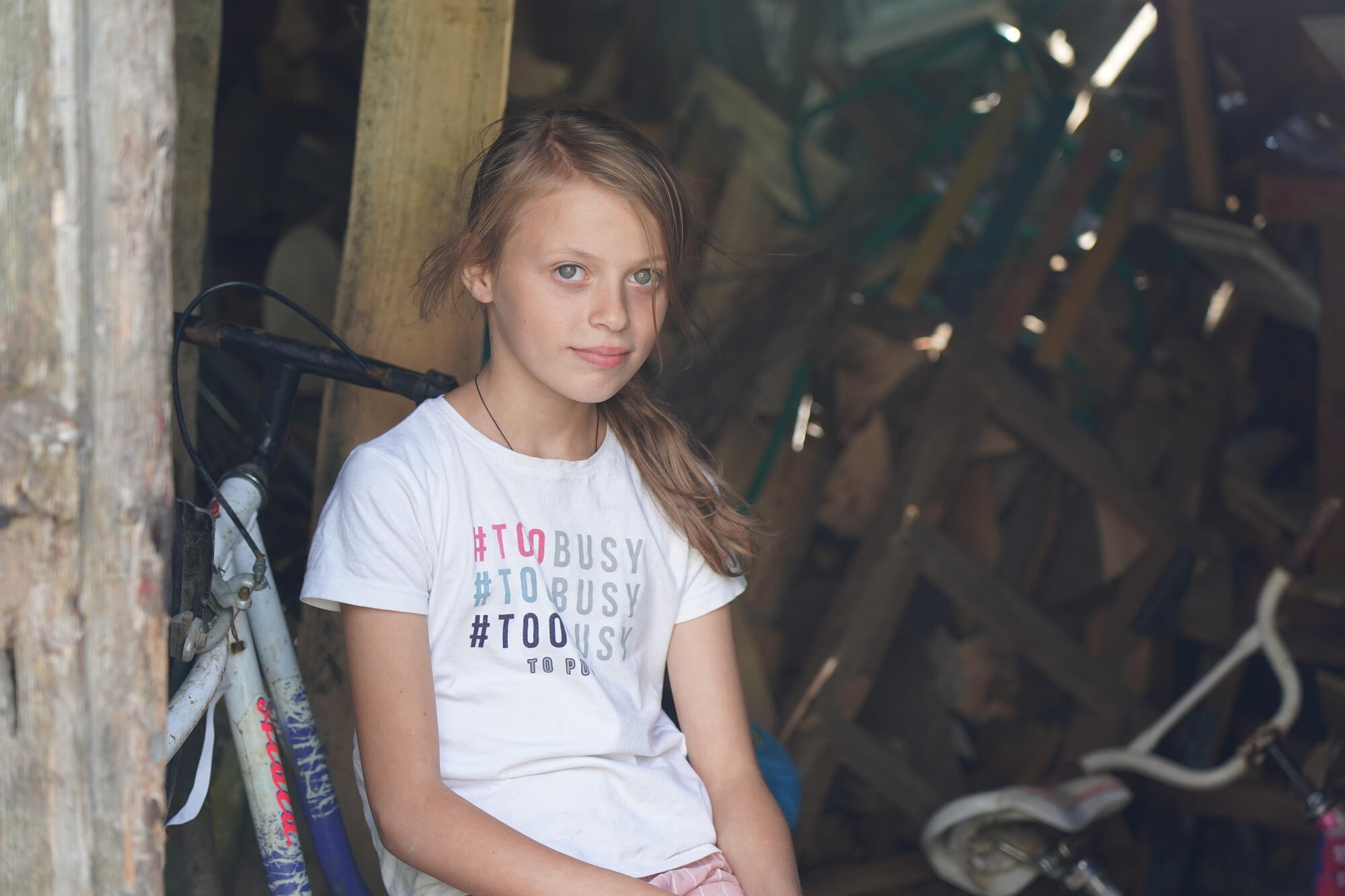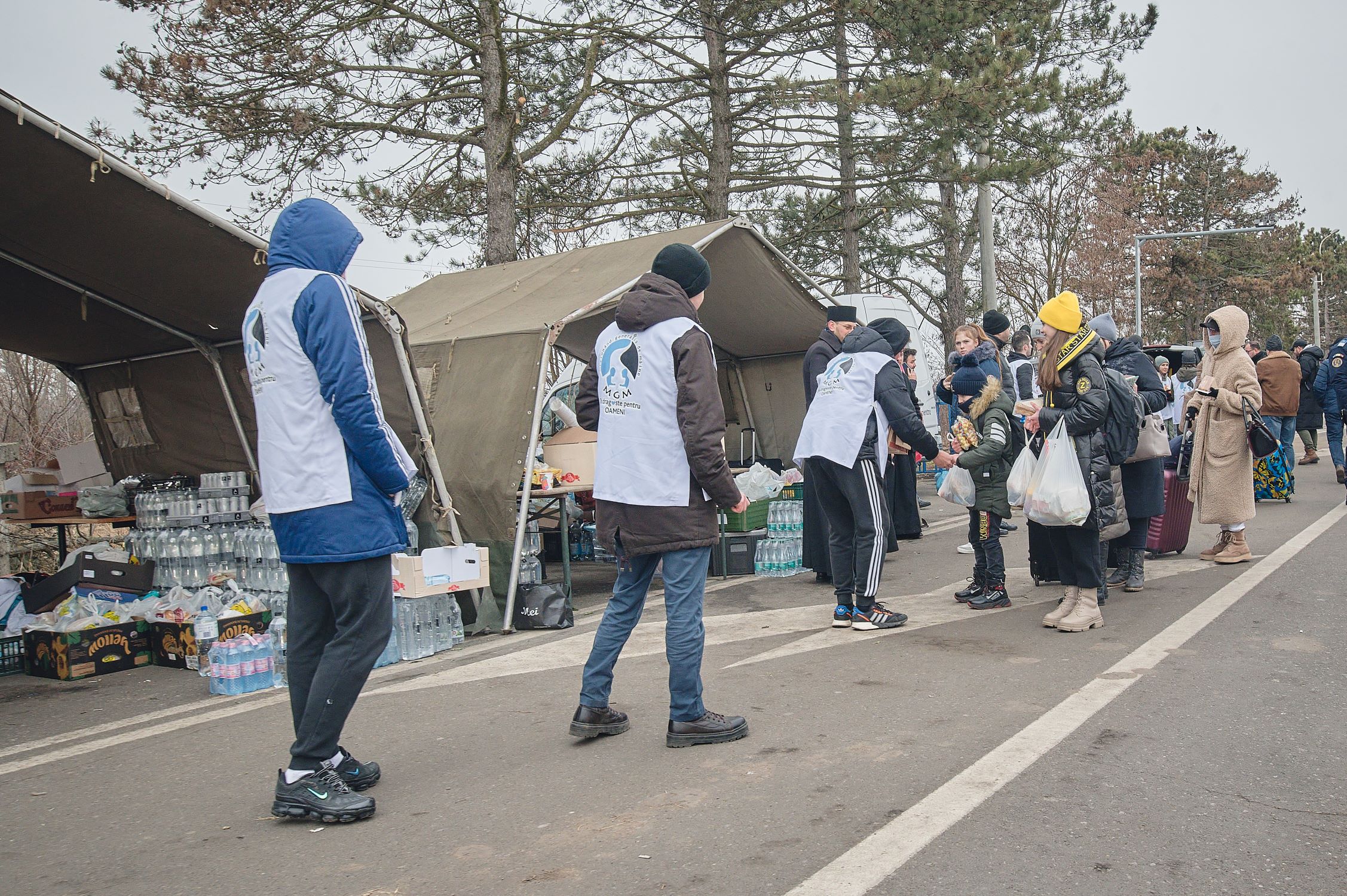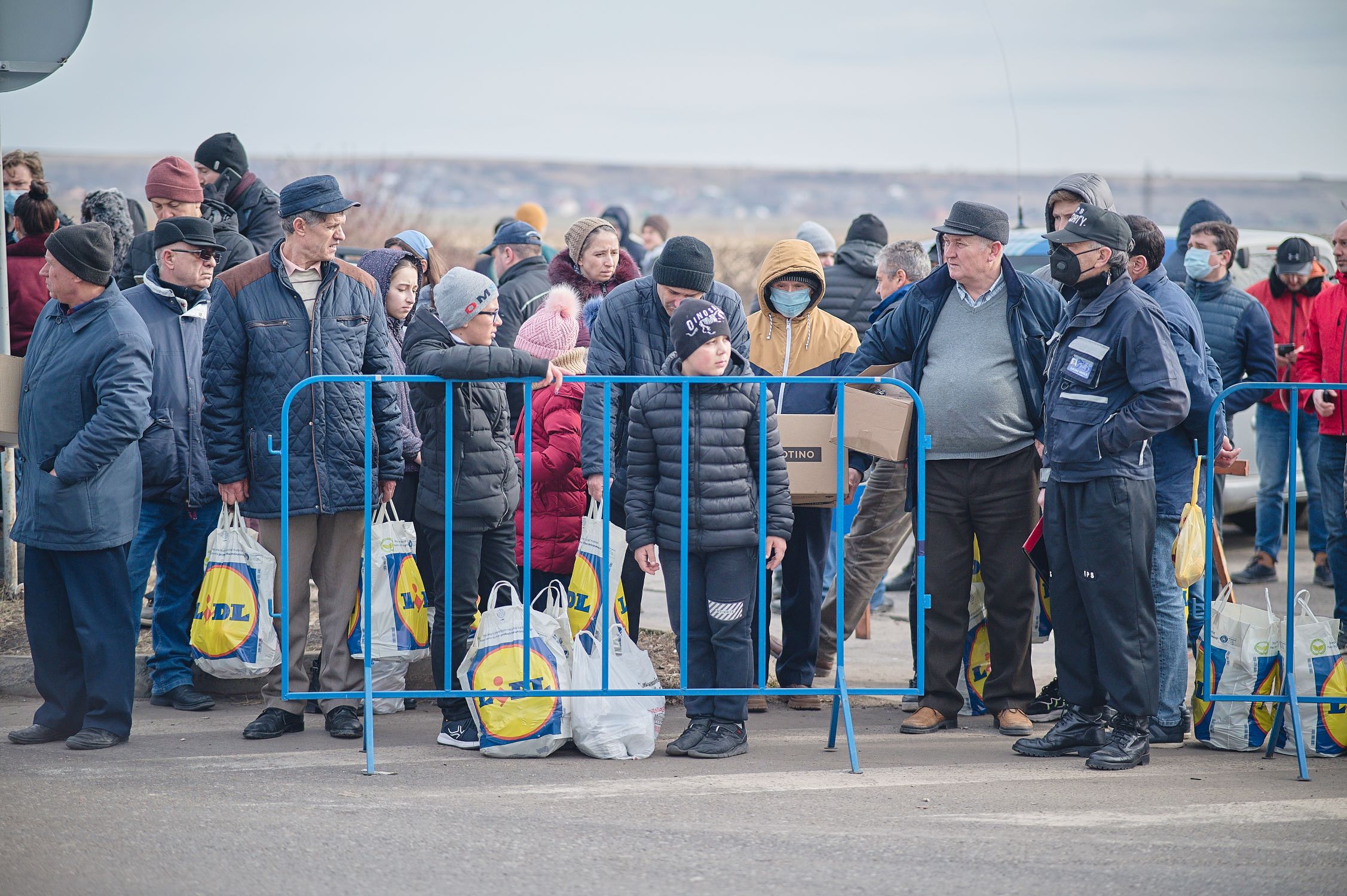
Eyewitness accounts from Ukraine
World Vision International President and humanitarian responders on the border
Heavy fighting, shelling and air strikes across Ukraine have had devastating consequences for ordinary people. Over 5 million people have fled the country in recent days, and many more have had to leave their homes to escape the fighting. At least 142 civilians have been killed with a further 550 injured, but these are expected to be considerable underestimates. Critical infrastructure such as health facilities, water supplies and schools have also been damaged or destroyed.
At Ukraine’s borders with Poland, Romania, Hungary, Slovakia and Moldova, huge numbers of people are arriving with only what they can carry. In many places there are long waits to cross and scant facilities waiting for them on the other side, with temperatures dropping below freezing overnight.
World Vision UK is part of the DEC (Disasters Emergencies Committee) which is launching an appeal to help those affected.
In the video below, Andrew Morley, President of World Vision International, is speaking from the border of Ukraine and Romania.
This is an eyewitness account from humanitarian responder Alberto Roca, from World Vision Romania, who has been meeting Ukrainian refugees fleeing to Romania.

Despair in their eyes
On the Ukrainian side of the border to Romania, the queue stretched over 10km.
I was on the Romanian side of the border and on arriving at the Siret Customs point (Vama Siret) I saw hundreds of mothers who have been forced to flee their homes alone with their children. They are without their husbands. The men are staying behind in Ukraine to fight. I saw confused children. I could see the despair in their eyes. Mothers pulled their youngsters along by the hand like suitcases, in a hurry to escape danger. The most emotional thing for me was seeing the children smile on receiving toy gifts. I knew that in all likelihood in the rush to leave home, they had probably not found space in their bags to pack their favourite toys.
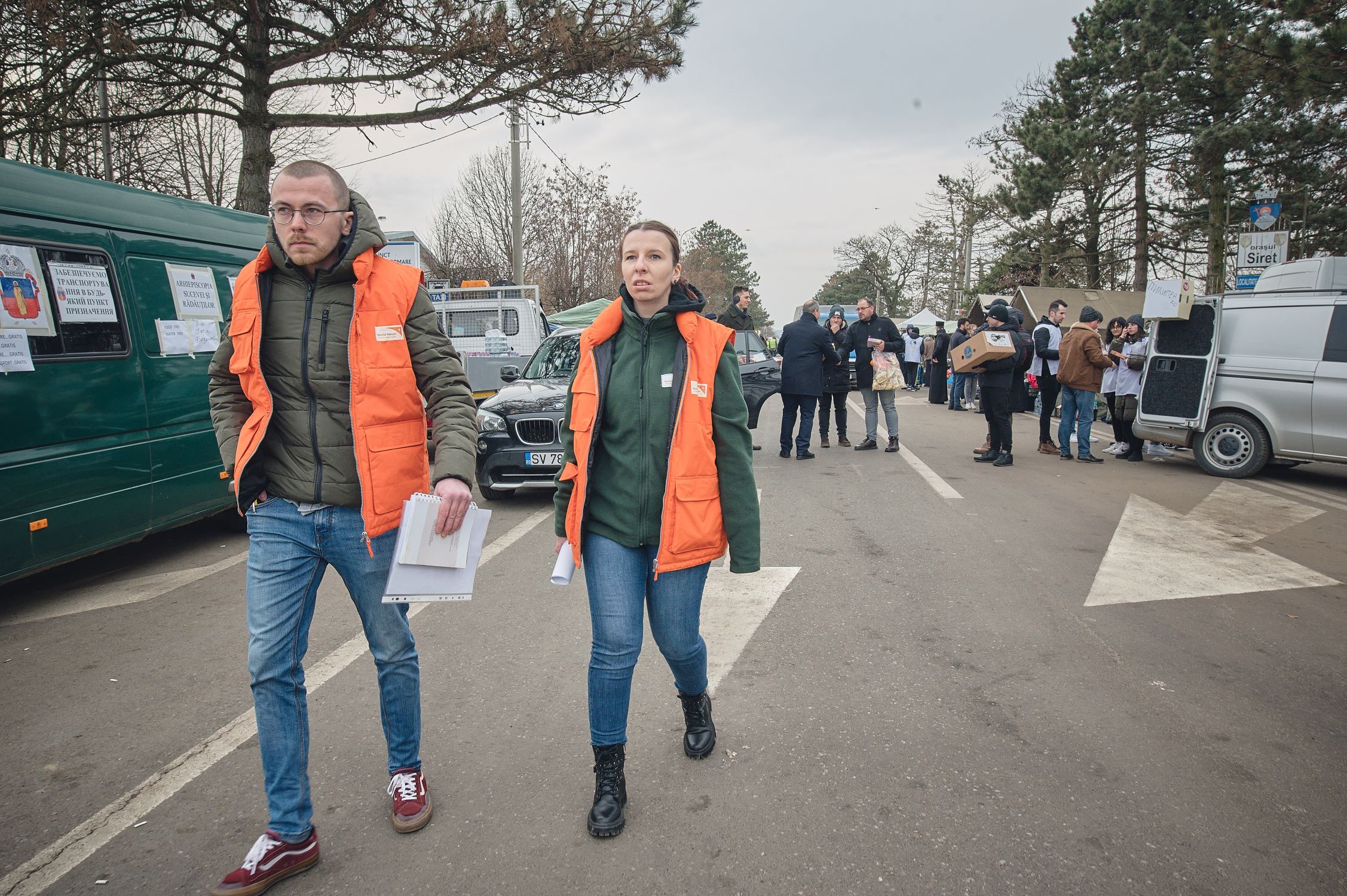
Mothers were confused, afraid at the thought that they will probably have to care for their children alone, without their partners. Girls and boys have been deprived of family security.
I talked to refugees, [and] provided moral support, food, water and hygiene products.
The biggest needs of Ukrainians arriving in Romania
Mothers with children who arrive in Romania need emotional support, food, and accommodation and transportation to get to relatives in Romania or in the rest of Europe. They need somewhere to stay and feel safe.
All needs – food, housing, emotional support, and transport – are going to grow and grow as more refugees arrive in Romania. Available accommodation, which is already in short supply, will soon become exhausted. We expect an increasing number of people to arrive, given that hostilities in Ukraine only started a few days ago.
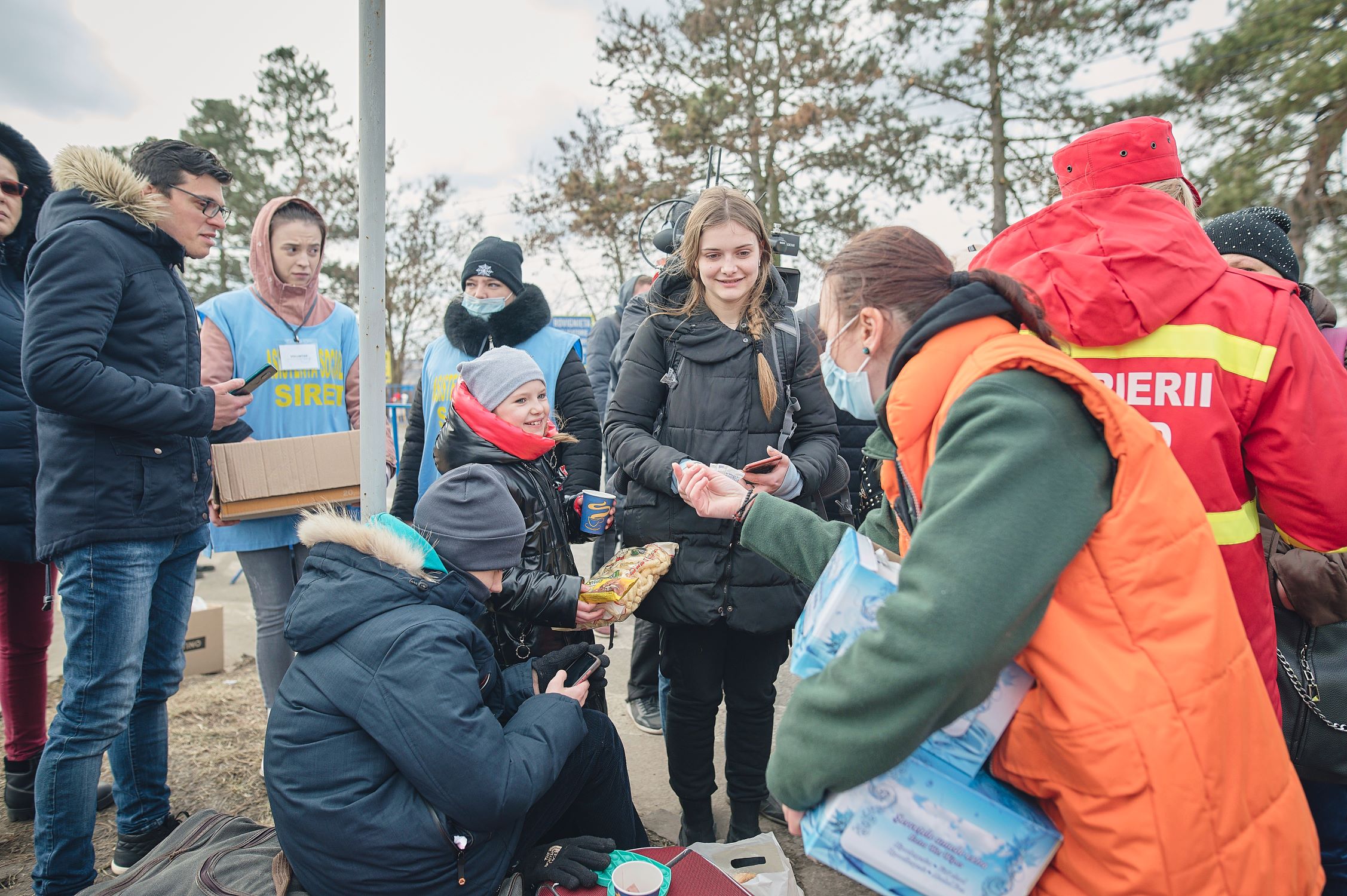
How Romanians are responding
I’m proud of how Romanians and civil society here are handling the situation. People are showing empathy, support, and have immediately organised to help people arriving from Ukraine, doing all they can to assist. There were many food distribution points, clothes and other products needed for daily use, being handed out at the border point. World Vision was one among a number of organisations helping.
How can we pray for Ukraine?
I think this is a moment of action and a moment of prayer. Only God can help the Ukrainian people have a country that is safe once more. I have hope that with all our prayers, they will.
I’m praying for the children of Ukraine to be safe. I think in this moment they are so scared, that they could suffer trauma that will last a lifetime. We must be there to help them.
We can provide support by being connected to needs of Ukrainians. We can improve their housing conditions; we can offer psychosocial support, and of course, we can meet food and hygiene needs.

World Vision Romania plans
We are assessing the likely long-term needs of the displaced so we can cushion the impact of this conflict. We are trying to find accommodation for refugees, provide food, phone cards and of course helping people get transport to their desired destinations. We are organising teams to provide psychosocial counselling. We want children to be safe and we will work to create programmes that are protective and caring, so a child’s development is not harmed.

